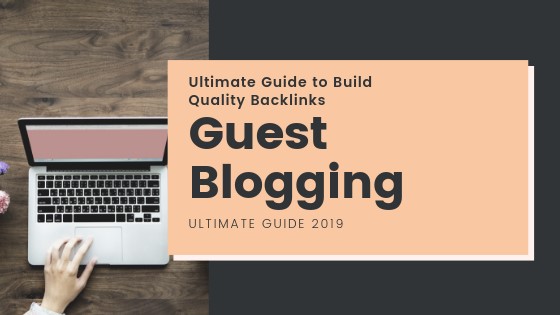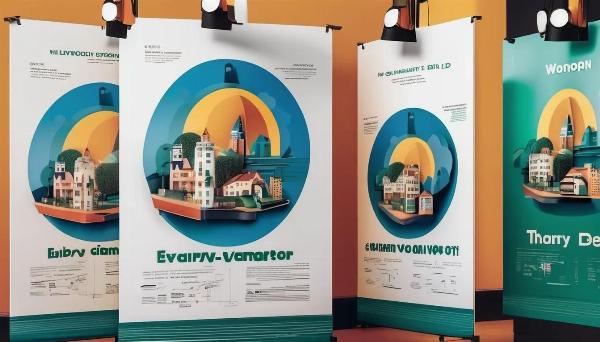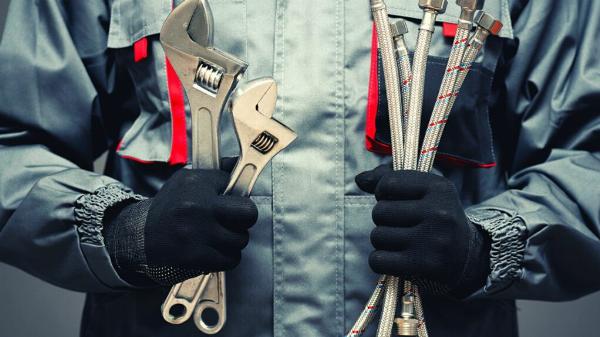 Bulk Content Creation – Scale Without Sacrificing Quality!
Bulk Content Creation – Scale Without Sacrificing Quality!
The Key Elements of a Successful Festival: Planning, Execution, and Audience Engagement
Written by Sarah Thomas » Updated on: June 17th, 2025

Festivals are more than just large gatherings of people—they are a celebration of culture, art, music, and community. Whether you are organizing a music festival, food fair, cultural event, or a large-scale celebration, the key to success lies in the planning, execution, and audience engagement. Successful festivals require a deep understanding of what works and what doesn’t, effective teamwork, and a well-coordinated effort to create an unforgettable experience for attendees.
1. Planning the Festival: Setting the Foundation for Success
Before any festival can take shape, proper planning is essential. It’s the first step in ensuring the event meets its goals and expectations. Proper planning involves several crucial elements: defining the purpose and objectives, securing the right venue, selecting the right date, budgeting, and obtaining necessary permits.
Define the Purpose and Objectives
Every festival should have a clear purpose or theme that aligns with its objectives. Whether the goal is to celebrate a specific cultural tradition, promote a cause, or provide entertainment, the purpose of the festival will guide all other decisions. Without a defined objective, it can be difficult to measure the festival's success or ensure that all elements are working toward a common goal.
Venue Selection
Choosing the right venue is one of the most important steps in festival planning. The venue should be accessible to attendees, offer enough space to accommodate the expected crowd, and suit the theme of the event. For instance, a music festival may require an open-air field, while a food festival may need a location that supports food vendors and cooking demonstrations.
Considerations for venue selection also include the local infrastructure, such as transportation options, parking, nearby accommodations, and restroom facilities. It's also important to think about weather conditions, especially for outdoor events. You may need to have contingency plans in place in case of bad weather, such as renting tents or moving the festival to an indoor location.
Selecting the Date
The timing of the festival is also crucial. Choosing the right date involves considering multiple factors, such as local holidays, the availability of key performers or speakers, and potential conflicts with other major events. It’s also essential to plan the event with enough time to allow for adequate promotion and ticket sales.
Budgeting
Every festival requires funding, whether it’s through ticket sales, sponsorships, or other sources. Planning the budget involves estimating expenses for various elements such as venue rental, staffing, permits, marketing, performers, catering, and equipment rental. Ensuring a solid financial plan will allow the event to run smoothly and avoid unexpected shortfalls.
Establishing a realistic budget and tracking expenses is key to maintaining profitability, and it’s important to always plan for contingencies, especially when organizing large events. With festivals, there are many moving parts, and financial oversight ensures that resources are allocated to priority areas without overspending.
Obtaining Permits and Insurance
Before the festival can take place, obtaining permits and insurance is essential. Permits vary based on the location and the type of event, and they often include approvals for food sales, alcohol, entertainment, noise levels, and crowd control. A failure to obtain the necessary permits can lead to delays or cancellations.
Insurance is also a critical component. Festivals often require public liability insurance to protect against unforeseen incidents such as accidents or property damage. Event organizers should work with a knowledgeable insurance broker to ensure the festival is adequately covered.
2. Execution: Bringing the Festival to Life
After the planning phase, the execution of the festival is where everything comes together. This phase involves logistics, vendor management, staffing, safety, and ensuring everything runs on time.
Vendor and Performer Management
One of the key components of execution is managing the vendors and performers. A successful festival needs a diverse mix of food, entertainment, and services to engage the crowd. For a music festival, booking talented performers that fit the festival's theme is crucial. If you're hosting a food festival, having local vendors that offer a variety of food options will appeal to attendees.
Efficient vendor management involves coordinating with each vendor well in advance to confirm setup times, booth arrangements, and power or water requirements. A detailed schedule and clear instructions are key to ensuring the day runs smoothly. For performances, keeping the schedule tight and on track is necessary to avoid delays or confusion.
Staffing and Volunteers
The success of a festival depends largely on the people executing it. Having a well-trained team of staff and volunteers can make all the difference in ensuring a smooth operation. Staff members should be assigned specific roles, whether it's handling security, ticket sales, crowd control, or assisting vendors. Volunteers can also play a vital role in helping to manage the crowd, provide information, and direct guests to various festival attractions.
Training your staff and volunteers before the event is critical to ensure everyone is clear about their roles and responsibilities. Clear communication between team members is vital for managing unexpected challenges, and a pre-festival meeting or training session can help avoid confusion on the day of the event.
Logistical Coordination
Executing a festival requires careful logistical planning, particularly in managing the flow of people, supplies, and resources. Event organizers must ensure that all infrastructure is in place, such as tents, stages, sound systems, signage, food booths, and sanitation facilities. Access roads for performers and emergency vehicles should also be clearly mapped out to avoid congestion and ensure quick responses if needed.
Technology can help streamline logistical operations. Event apps or management software can help with everything from managing ticket sales to scheduling performances and providing guests with real-time updates about the event.
Safety and Security
A successful festival puts attendee safety first. Security measures should be well thought out, including crowd control strategies, emergency medical services, and sufficient security personnel. Security checks at the entrances, including bag checks and metal detectors if necessary, can ensure a safe environment for attendees.
First aid stations should be easily accessible, and staff should be trained to handle medical emergencies. It’s also important to have a clear evacuation plan in case of emergencies, with designated exits and staff trained in emergency procedures. Communication between staff, vendors, and security should be seamless to ensure a quick response to any potential issues.
Technology and Infrastructure
With modern technology, festivals are no longer limited to basic operations. You can enhance the experience for your audience by integrating mobile apps, social media, digital ticketing, cashless payment systems, and live streaming. A user-friendly event app can allow attendees to access maps, schedules, and exclusive content, while live streaming makes it possible for those unable to attend in person to still engage with the event. As a result, festivals now generate more engagement and reach a broader audience.
3. Audience Engagement: Creating a Memorable Experience
The success of a festival is ultimately determined by how engaged and satisfied the audience is. Engaging the audience involves both online and offline efforts to create lasting memories and experiences that attendees will want to share with others.
Interactive Experiences
Festivals should provide interactive experiences that encourage active participation. These can include workshops, cooking demonstrations, meet-and-greets with performers, or immersive art installations. When people feel involved, they are more likely to share their experiences on social media, boosting the event’s visibility.
Marketing and Promotion
A strong marketing campaign is essential to ensure that the festival attracts the right audience. Use a mix of online and offline marketing strategies to reach as many people as possible. Social media, email newsletters, paid advertisements, and influencer partnerships can all be used to promote the event and generate buzz. Engaging content, such as behind-the-scenes videos, artist interviews, or sneak peeks of what attendees can expect, can also create excitement and anticipation.
Post-Festival Engagement
Engaging with attendees doesn’t have to end when the festival is over. Post-festival engagement can involve sending out thank-you emails, surveys to gather feedback, and sharing event highlights through social media posts, blogs, and videos. By keeping the conversation going after the festival, you can maintain momentum and ensure that attendees are excited for next year’s event.
Data Collection and Analysis
Using data analytics is an effective way to measure success and refine future festival strategies. Data can be collected through ticket sales, social media interactions, and surveys. Analyzing attendee behavior and preferences can help in planning future events and improving customer satisfaction. According to a report by Eventbrite, 90% of organizers believe that data analytics helps them improve their event strategies and boost audience engagement.
Sustainability and Community Impact
Sustainability is an increasingly important aspect of modern festivals. Many festivals now focus on reducing their environmental footprint by implementing sustainable practices such as using eco-friendly materials, offering waste separation stations, or encouraging attendees to use public transportation. Furthermore, the impact of a festival on the local community should not be overlooked. Festivals that contribute to local businesses and promote cultural exchange can leave a lasting legacy that extends beyond the event itself.
Conclusion
A successful festival relies on effective planning, flawless execution, and meaningful audience engagement. From defining the festival's purpose and selecting the right venue to creating interactive experiences and promoting the event through modern marketing channels, every element contributes to a cohesive experience. By focusing on these key aspects, organizers can ensure their festival is not only memorable for attendees but also sustainable and impactful in the long run.
Note: IndiBlogHub features both user-submitted and editorial content. We do not verify third-party contributions. Read our Disclaimer and Privacy Policyfor details.
Copyright © 2019-2025 IndiBlogHub.com. All rights reserved. Hosted on DigitalOcean for fast, reliable performance.

















